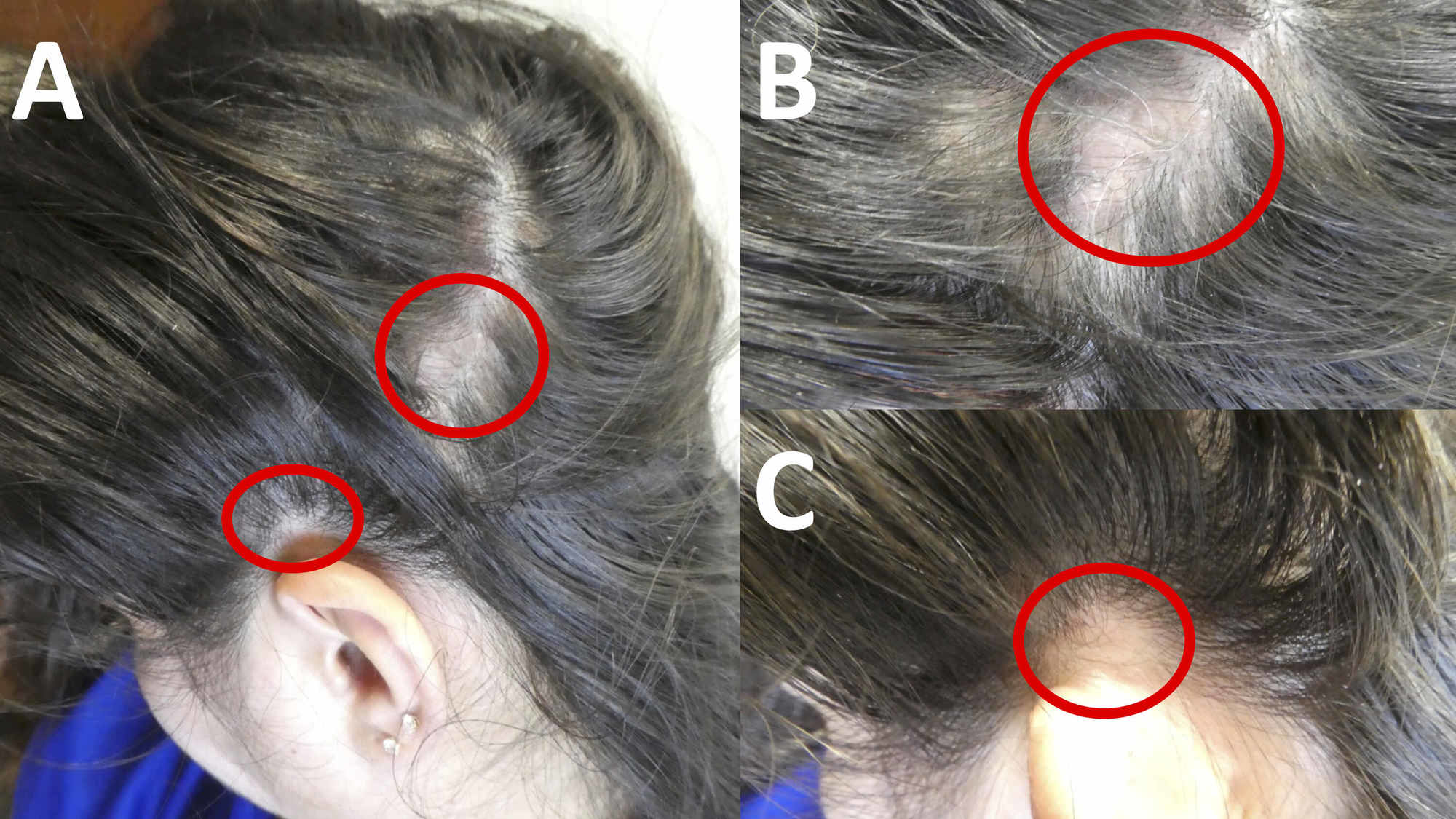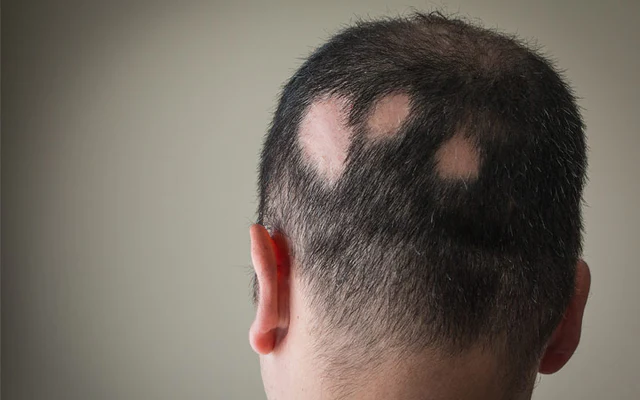Alopecia is a medical condition that causes hair loss on various parts of the body. There are several types of alopecia, and each type can have a different cause and treatment approach.
Here are some of the different types of alopecia:
- Androgenetic alopecia: This is a common type of hair loss that affects both men and women. It is caused by genetic and hormonal factors and typically begins with a receding hairline in men or thinning at the crown of the head in women.
- Alopecia areata: This is an autoimmune disorder that causes patchy hair loss on the scalp, face, and other parts of the body. It occurs when the body’s immune system attacks hair follicles, leading to hair loss.
- Traction alopecia: This type of hair loss is caused by pulling the hair too tight or wearing hairstyles that put tension on the hair, such as braids, weaves, or tight ponytails.
- Telogen effluvium: This is a temporary form of hair loss that occurs when the body experiences a shock, such as surgery, childbirth, or severe stress. It causes hair follicles to enter a resting phase, leading to shedding.

Dietary Management
Alopecia, or hair loss, can have several underlying causes, including genetic factors, autoimmune disorders, and nutritional deficiencies. While dietary changes alone may not necessarily reverse hair loss, a balanced and nutrient-rich diet can help support healthy hair growth and prevent further hair loss.
Here are some dietary recommendations for managing alopecia:
- Increase your intake of protein: Hair is made up of keratin, a type of protein. Therefore, it is essential to include adequate amounts of protein in your diet to support healthy hair growth. Good sources of protein include lean meats, fish, eggs, beans, lentils, and nuts.
- Include healthy fats: Omega-3 fatty acids, found in fish, flaxseed, chia seeds, and walnuts, can help reduce inflammation and promote healthy hair growth.
- Consume plenty of fruits and vegetables: These are rich in vitamins and minerals that support hair health, including vitamins A, C, E, and B-complex vitamins, iron, and zinc. Some excellent options include spinach, kale, sweet potatoes, carrots, berries, and citrus fruits.
- Avoid processed and high-sugar foods: These foods can lead to inflammation and damage to hair follicles, exacerbating hair loss.
- Consider supplements: In some cases, supplements such as biotin, iron, and vitamin D may be beneficial for hair health. However, it’s essential to talk to a healthcare provider before taking any supplements.
Overall, a healthy and balanced diet can support hair health and help manage alopecia. However, it’s essential to consult with a healthcare provider to determine the underlying cause of hair loss and develop an appropriate treatment plan.

